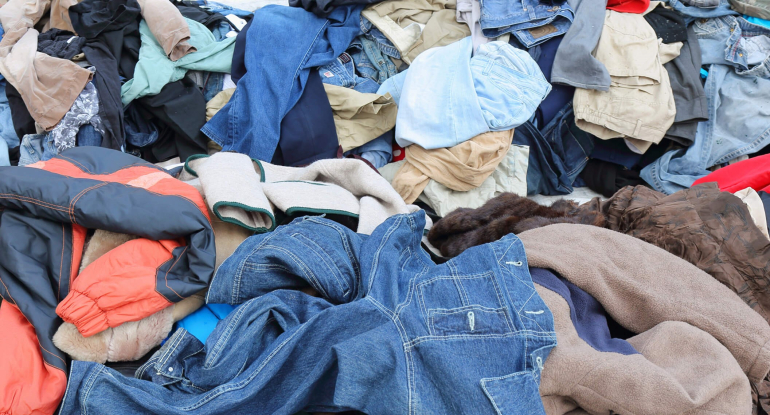Latest news
Read the latest news from the Centre for Sustainable Materials Research and Technology

In this ABC TV News story, Prof Veena welcomes a new tax in France aimed at reducing mountains of textile waste in a new 'fast fashion' crackdown.
Veena tells the ABC a similar move here in Australia could help cut waste and reduce the "floodgate" of imported 'fast fashion' materials into Australia, with statistics from the Department of Climate Change, Energy, the Environment and Water Clothing textiles - DCCEEW showing:
Australians buy more clothes per person than any other country which is fuelling a fast fashion waste crisis, according to new Australia Institute research.
And recently an important new textiles recycling partner has joined SMaRT's ARC Research Hub for Microrecycling of Battery and Consumer Wastes.
Textile Recyclers Australia (TRA) Pty Ltd joins the Hub, hosted and directed by SMaRT and its Director, Professor Veena Sahajwalla, as a formal partner to help develop and commercialise innovative solutions to waste challenges.
Veena said: “Led by co-founders Ben Kaminsky and Maureen Taylor, TRA looks for circular solutions for unwanted textiles to keep them out of landfill.
“With TRA joining the Hub, the program will broaden and continue developing work on technologies and processes to reform hard to recycle wastes, like textiles, into new materials and products.”
Ben said: “TRA processes unwanted garments into recycled yarn for ‘new’ apparel, but we know through SMaRT and the work of others that waste textiles are a resource that can be reformed into new things and materials for other products.
“The textile industry is the second largest polluter in the world. This requires multiple solutions for such a huge problem, and the ARC Microrecycling Hub is looking to advance SMaRT’s work in developing new solutions and we are excited to be part of that journey.”
The Microrecycling Hub is a five-year national program of cutting-edge research and development to boost resource recovery capability by creating new advanced and scalable manufacturing technologies, based on SMaRT’s MICROfactorieTM concept.